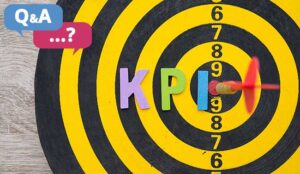Call Centre Agent Performance Targets
Hi there,
I’m looking to build a fact base of call centre agent performance targets, ahead of setting objectives for next year.
Will anyone share theirs?
I’m particularly interested in productivity targets, does anyone share the view that its team managers only who should be targeted on agent performance?
Question asked by Gemma
My Favourite Subject…
Calls per Hour, Talk Time, Idle, and Wrap (ACW) are nonsensical targets in the majority of contact centre environments, yet they remain the number 1 targets for contact centre agents around the world!
In the perfectly managed contact centre, it may be possible to guarantee a consistent flow of calls to all agents, however this requires impressive resource and workflow management. It is feasible that with a limited product and service range a genuine optimum “talk time” and “ACW” target can be applied to all calls. But do any of us work in such a simplistic and idealistic environment? (If so I have a CV ready to forward to you!)
So if we take away these foundations of our performance management culture what do we use to measure the productivity and efficiency of our contact centre agents? And who is responsible for ensuring team productivity and efficiency remains high?
Calls per Hour
This is dictated by numerous factors controlled not by the agent but by the operation’s managers; therefore it is the managers who must be targeted on their teams’ efficiency (occupancy and utilisation)
- The resource levels of the team determine the “available” time in the team. “Available” time can be directly influenced through utilisation management, but not by the agents.
- The call traffic volumes dictate the frequency of calls hitting the queue. Only the customers can decide to call in.
- The length of calls and associated “Wrap” (ACW) determines the availability of agents to take calls.
Wrap (ACW)
Wrap time will vary depending on the nature and complexity of the call.
Idle
“Idle” is signed on time where the agent is not involved in calls. Other than personal (comfort) breaks “Idle” must be planned, or where reactive must be tracked and recorded. As “Idle” usage is planned and therefore beyond the control of the agent, it cannot be targeted; to do so results in agents penalised for training, etc. A typical “Idle” breakdown for an inbound contact centre profiles as:
- Breaks 7.25 % (30 minutes per day)
- Personal breaks 2% (Average 8.5 minutes per day)
- Training / coaching 5% (Average 1 hr 45 minutes per week)
- Query for use by lower benchmark agents only against individual targets
- Meetings 2% (Average 3 hr per month)
- Idle “Admin” only to be used for accountable time, such as being taken off the phones to support administration. This must where possible be planned time off the phones, or where reactive it must be tracked.
- Idle “None” must not occur for any reason.
- Idle “Training” must be accountable by either the training team or the Team Leader. This must where possible be planned time off the phones, or where reactive it must be tracked. Any ad hoc coaching should be recorded against “Training”.
- Idle “Query” must only be used by agents in the lower benchmark as agents’ queries must be answered during the call by either an assist or handoff, or during the wrap part of the call (recorded as “Wrap” or “ACW”). If calls are being handed off due to a skills or knowledge gap then this must be picked up as coaching or training, to be delivered when call flow allows. Agents in the lower benchmark have a greater need for assistance during the call, and restrictions in the number of experienced resource available to mentor and assist means that they have a need to use “Query” when appropriate.
- Daily ‘buzz sessions’ and ad hoc meetings such as daily target setting must be reorded against “Meeting”
- Agents must sign off the phones for lunch, as this is unpaid time. Remaining signed on distorts the true occupancy and shrinkage figures.
Occupancy
- “Talk” time – Targeted against individual performance
- “Wrap” time – Targeted against individual performance
- “Available” time
- “Occupancy” = “Talk” + “Wrap”
- Talk time is only partially under the control of agents. The requirement in most businesses is dependant on the nature of the individual call. Excessive talk time, when caused by lack of call control or knowledge, is a measure of quality issues not productivity, and should be addressed as such.
- Wrap time (ACW) is the only state an effectively managed agent can place themselves in to avoid taking further calls. However the length of wrap required will be determined by the nature of each call. It is therefore the correlation between Talk + Wrap that needs to be managed.
- Talk time vs. Wrap time provides an accurate measure of agent efficiency. As an agent’s knowledge, experience, and technical proficiency increases the % of talk time must increase and the % wrap time decrease.
- Talk time & wrap together provide the “occupancy” measure. Efficient occupancy is usually considered to be around 80-85%; the maximum occupancy before agents start displaying defensive and negative behaviours is 88% plus. The occupancy measurement is a % of time signed into “Talk”, “Wrap”, or “Available”. E.g. 65% “Talk” + 12% “Wrap” + 18% “Available” = 73% “Occupancy”
- “Available” time is dictated by call flow against resource.
Fig.1 Targets
Measure Target Responsibility Team Leader Actions
Occupancy Determined by agent benchmark levels Agent Manage, track, record
Talk Time Measured through Occupancy Agent Manage, track, record
Wrap Time Measured through Occupancy Agent Manage, track, record
Quality Determined by agent benchmark levels Agent Manage, track, record
Sickness None Agent Manage, track, record
Annual leave e.g 8.5% per annum for 22 days Manager Plan, track, record
Banked / Recalled Hours None Manager Plan, track, record
Secondments None Manager Plan, track, record
Maternity leave None Manager Track, record
Compassionate leave None Manager Track, record
Non-Adherence 0.25% maximum Agent Manage, track, record
No shows None Agent Manage, track, record
Idle None Manger Plan, track, record
Breaks e.g 7.25% for 30 minutes per day Manager Plan, track, record
Personal breaks 2% Agent Manage, track, record
Training / coaching 5% Manager Plan, track, record
Queries Individual Agent Manage, track, record
Meetings 2% Manager Plan, track, record
With thanks to Dylan
Past Discussions
Gemma,
There are several past threads which might help you too – try <brhttps://www.callcentrehelper.com/forum/targets-the-brave-new-world-3471.htm
for starters
Cheers
Zoe
With thanks to Zoe
Favourite Subjects
does anyone share the view that its team managers only who should be targeted on agent performance?
Like Dylan I don’t share that view; Anyone who impacts on agent performance has a case to answer for being targeting on said performance.
This would include ; Call centre managers and supervisors, predictive dialler controllers, IT support, Telecomms support, policy makers, quality team, training, team leaders, schedulers, analysts, recruitment.
Team leaders should be targeted on team performance not individual performance.
I’m also of the opinion that Operations staff should draft and implement performance measures and HR staff should support and develop staff.
With thanks to Closed
Links to Threads
Should I be able to do that or am I just too technologically challenged?
With thanks to Zoe
Sigh….
In the forthcoming-at-some-point community engine I’m beavering away on, this stuff will change. There’ll be some kind of easy mark-up language and buttons you can press to do lots of neat stuff.
John
PS. As Dave says, don’t ever use that Marquee. If you do, I’ll use my community super-powers to remove it and turn you into a forum frog or something. Ok, so I’m kidding about the frog bit.
With thanks to John
Call Centre Agent Performance
Hard measurements are great, but don’t forget the balanced scorecard, qualitative and quantative measurements! Both are vital to ensure the right behaviours are driven in contact centre environments.
With thanks to Jacqueline
Author: Jonty Pearce
Published On: 12th Apr 2022 - Last modified: 26th Feb 2025
Read more about - Call Centre Questions



































